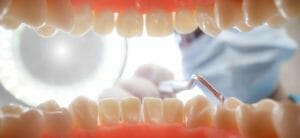How To Prepare for a Dental Emergency
When dealing with a dental emergency, it’s important to call on your Houston dentist at FMS Dental. However, it’s important to know how to handle an emergency when it happens on a holiday, weekend, or late at night. When you have a severe dental issue outside normal hours, you might need an emergency dentist or even an emergency room.
Moreover, it’s essential to understand the difference between a common dental issue that can wait and a real dental emergency. This is because a true emergency might threaten your health or result in the loss of a tooth. Here are some important factors to consider so you recognize dental emergencies.
How to Recognize Dental Emergencies
According to American Family Physician (AAFP), roughly 20% of people have experienced dental pain or oral pain in the last six months. This shows how common dental emergencies are.
Still, it’s important to understand that not every dental issue is an emergency. To help you understand whether your problem can wait, here are a few important questions to ask yourself.
- Is my dental pain severe? Severe pain and bleeding point to an emergency.
- Have I lost a tooth? Quick treatment has the potential to save your tooth.
- Are my teeth loose? Adult teeth should never be loose. Even without pain, a loose tooth is a serious concern.
- Do I have an infection? Serious infections have the potential to be life-threatening. You might notice swelling in the gums or around the face.
- Am I bleeding from the mouth? This is a potential sign of a dental emergency.
Generally, dental problems that involve bleeding, severe pain, or tooth loss constitute an emergency. This also applies to potentially life-threatening infections. When you have these symptoms, call your dentist immediately and describe the situation.
If the office is not open, you may need an emergency dentist or a trip to the ER.
What’s NOT a Dental Emergency
If the problem feels like it can wait, it’s not an emergency. At times, problems that seem critical only require moderate care until your dentist is open. For instance, a chipped tooth is only an emergency when it causes severe pain or leaves sharp fragments in your mouth. When a chipped tooth does not hurt, it can wait.
Toothaches with mild pain also do not require immediate treatment. However, if you notice an abscess or swelling or have a high fever, it’s important to seek treatment.
When you lose a filling or crown, it often does not impact your life too much. With a lost crown, you may be able to use denture adhesive to put it in place. However, NEVER use super glue.
What Are Common Dental Emergencies?
If you experience any of the following dental emergencies, here are tips to care for the problem until you can see your Houston dentist.
Chipped Tooth
With a painful or serious fracture, use warm water to clean your mouth. Next, apply a cold compress to the outside of your face in order to reduce swelling.
Take something akin to acetaminophen for the pain. However, avoid painkillers and numbing gels. These can cause damage to the gums.
Knocked-Out Tooth
With prompt action, it’s possible to preserve and reinsert a tooth that gets knocked out. Follow these steps and reach out to your Houston dentist.
- Carefully pick the tooth up by the top or crown. Try not to touch the root.
- Rinse the tooth off gently but avoid any scrubbing.
- Attempt to reinsert the tooth in the socket if possible.
- If you cannot replace the tooth, keep it in a small container of milk and visit the dentist as soon as possible.
The faster you act, the better your chances of saving your tooth.
Abscessed Teeth
A dental abscess is severe and potentially even life-threatening. In this condition, a pocket of pus develops and leads to an infection. An abscess can cause fever, sensitivity in the tooth, a persistent toothache, tender lymph nodes, swelling, and bumps on the gums.
This is a dental emergency because when the infection spreads, it can reach surrounding tissue and even other areas of your body. Before you visit your dentist, rinse your mouth out with mild saltwater several times. This helps to reduce your pain and draw the pus towards the surface.
How to Avoid Dental Emergencies with Your Houston Dentist
To avoid dental emergencies, your best bet is to stay proactive with oral health. Maintain a routine of regular check-ups with your Houston dentist. At your visits, we check for loose crowns, fillings, etc. We also look for signs of decay, gum disease, and infection.
If a dental emergency requires tooth extraction, follow your dentist’s guidelines carefully to avoid further risks. When you come to our Houston dental office, we personalize your treatment plan to address your specific issues. Moreover, we remain proactive to stay ahead of emergency situations.
While comprehensive oral hygiene helps keep issues at bay, dental emergencies still happen. When you suffer from a dental emergency, time is of the essence. Prompt action avoids worsening problems. At FMS Dental, our team is here to help whenever you have questions about your care.
Call our team today to see what we can do for you!

